Fruits and berries?
18 years ago
Related Stories
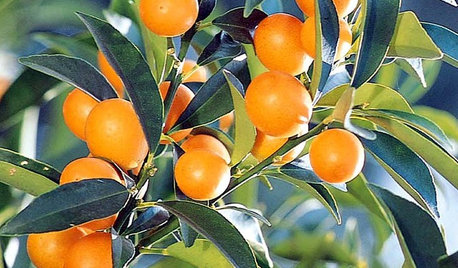
FALL GARDENING5 Fall Fruits You Can Grow in Containers
Brighten your porch or patio with a potted pomegranate, kumquat, blueberry bush or another great fall fruit
Full Story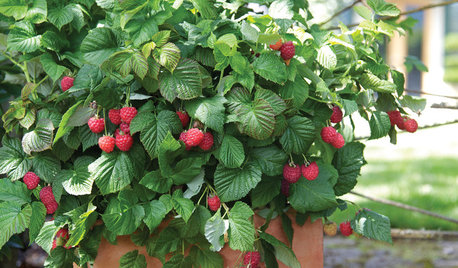
CONTAINER GARDENSPatio-Perfect Berry Bushes Like You’ve Never Seen
Small enough for pots but offering abundant fruit, these remarkable bred berries are a boon for gardeners short on space
Full Story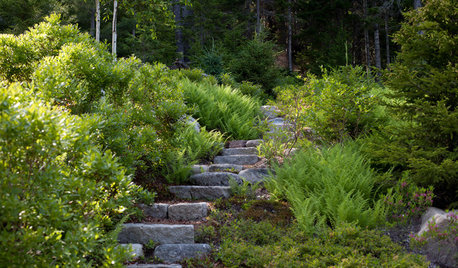
GARDENING GUIDESGreat Design Plant: Grow Blueberries for Their Fruit and More
Eastern gardeners should consider growing blueberry plants for their delicious fruits, bee-friendly spring blooms and brilliant fall foliage
Full Story
Fruit Displays Sweeten Summer Interiors
Eating the rainbow takes on a new meaning in these seasonally inspired fresh fruit accents
Full Story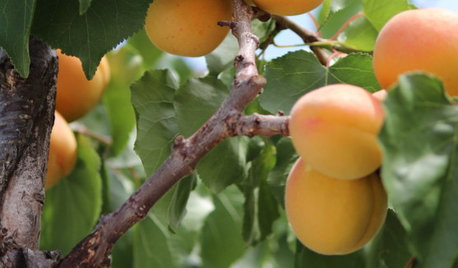
FARM YOUR YARDIf You Have Room for Only One Fruit Tree ...
Juice up a small garden with one of these easier-care or worth-the-effort fruit trees for a mild climate
Full Story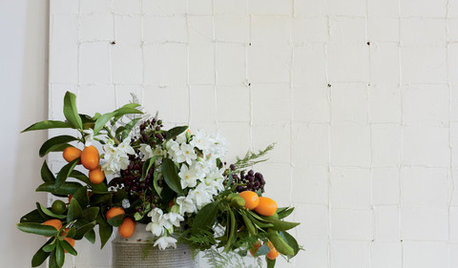
DECORATING GUIDESPut Your Best Fruit Forward in Splendid Fall Arrangements
Luscious, colorful and unbeatably fresh, fruit-centered arrangements bring welcome flavor to fall home decor
Full Story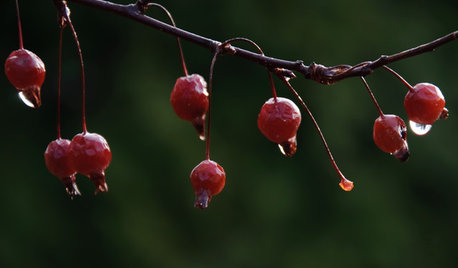
GARDENING FOR BIRDSFeed the Birds: 6 Plants for Abundant Winter Berries
Be kind to your fair feathered friends during lean food times by planting a shrub or tree loaded with nutritious snacks
Full Story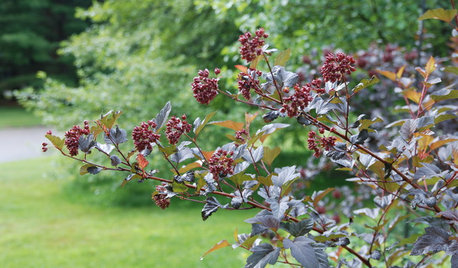
GARDENING GUIDES6 Branches and Berries to Spruce Up Holiday Decor
Bring garden cuttings in from the cold to warm up seasonal arrangements and decorate your home for the holidays
Full Story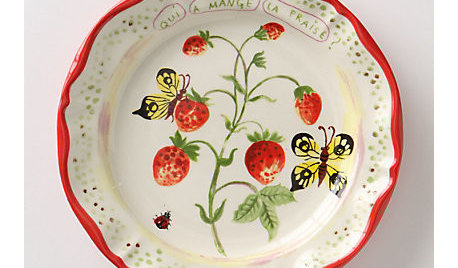
PRODUCT PICKSGuest Picks: 20 Berry Good Kitchen Finds
This batch of baking, canning and berry-inspired kitchen supplies is ripe for the picking
Full Story
EDIBLE GARDENSHow to Grow Your Own Sweet Summer Crops
This guide will help any gardener get started on growing the freshest warm-season veggies and berries for summer
Full Story
Sponsored




gardenlad
garnetmoth
Related Discussions
WANTED: Miracle Fruit/Miracle Berry plant
Q
Which fruit or berry is best for my landscape area?
Q
Largest repository of fruits and berries to be destroyed!!
Q
Case Nursery - fruit trees, berries, heirlooms
Q
jimster
kris
garnetmoth
maryinpnw
winter_unfazed
redbrick
gwallamagoat
Mary_in_pnw
gwallamagoat
garnetmoth
grateful_gardener
Twilight06